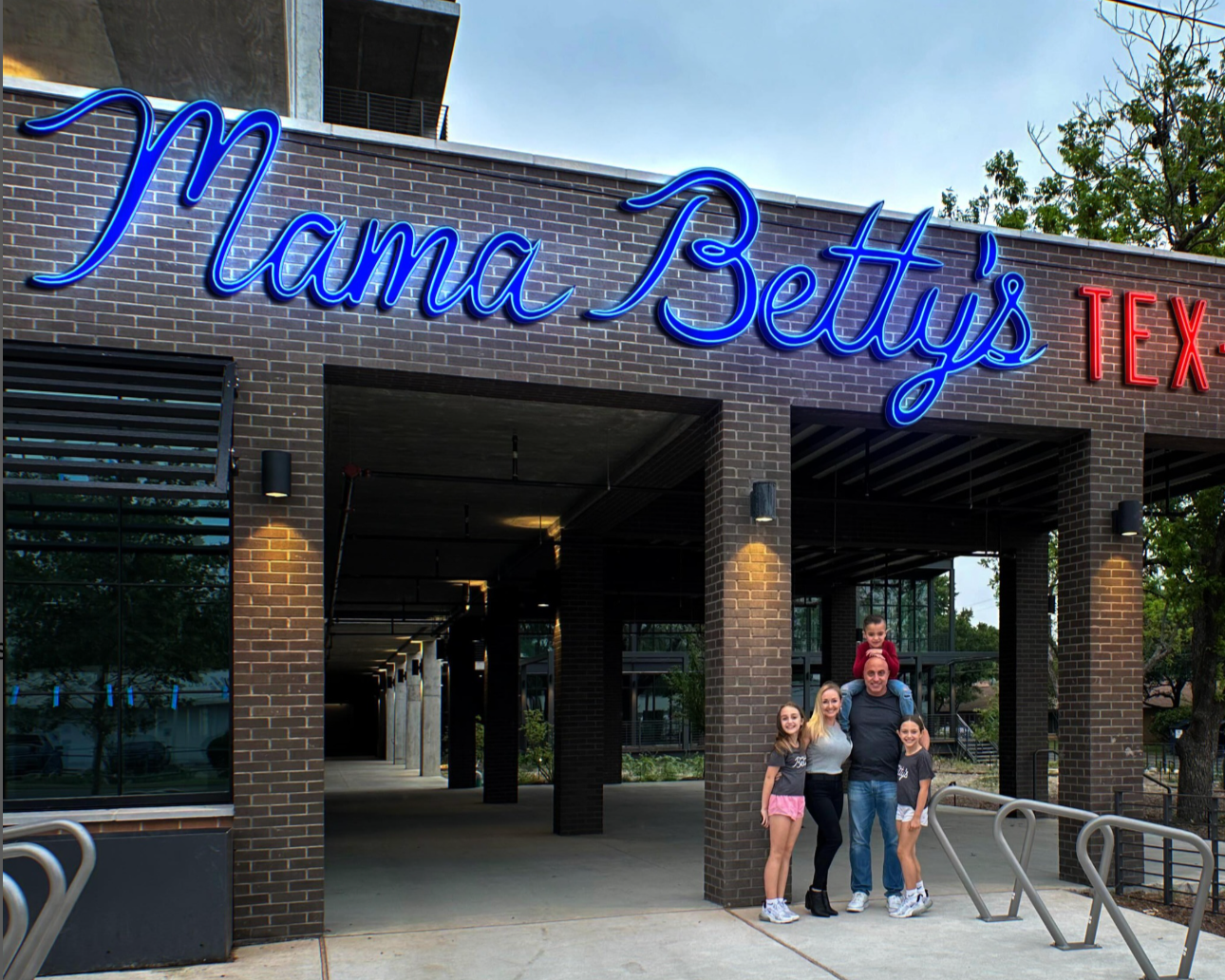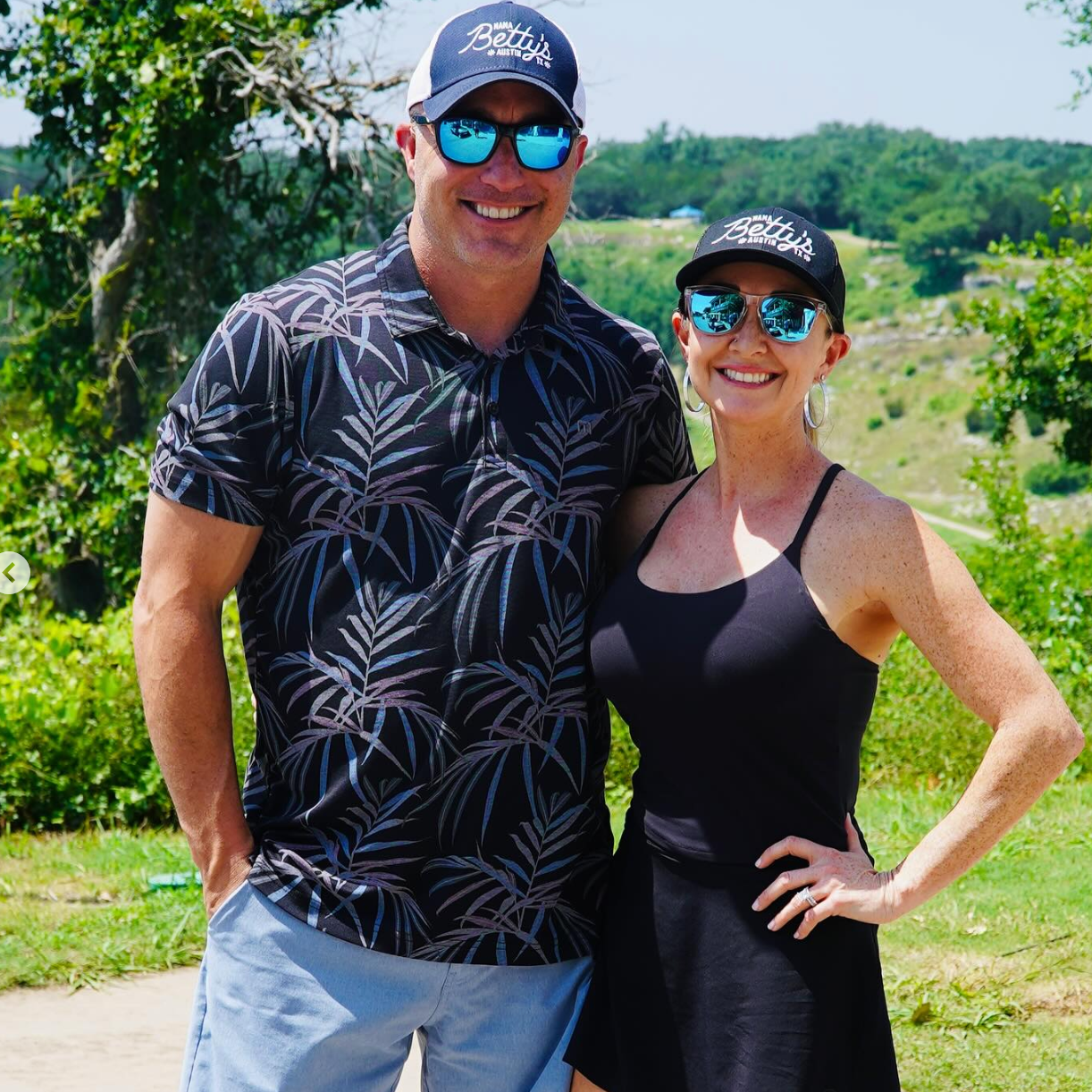From Loss to Legacy: Austin Restaurant Owner Transforms Cancer Grief Into Mental Health Advocacy
When Jason Carrier first met Flatwater's founder, Mark Garza, at an anniversary party around 2009/2010, both men were navigating a parent’s cancer journey. Jason had recently lost his mother to the disease, while Mark was supporting his father through treatment.
What started as a conversation between two grieving sons at a bustling Austin bar would evolve into an 11-year partnership that has raised over $45,000 annually for cancer mental health therapy services in Central Texas.
"I think our stories really hit with each other," Jason recalls. "He was describing paddleboarding in the morning as a way of clearing his space and starting a nonprofit around that." The concept resonated deeply - those early morning hours on flat water, offering a moment of clarity amid the chaos that cancer brings to families.
When Grief Needs Time: The Five-Year Journey to Readiness
While Jason loved Mark’s idea, he wasn’t ready to go all-in. "At the time, I was done with cancer," Jason explains candidly. "I was like, I can't just sit here and think about my mom or think about cancer more than I have. I need a break."
Jason even witnessed one of Flatwater's early Dam That Cancer events from the sidelines, watching exhausted paddlers complete the grueling 21-mile journey from dam to dam on "the windiest day ever." His immediate reaction was “that is not for me. No, thank you. I'm intimidated by every aspect of that."
But grief, like healing, follows its own timeline. Five years later, when Jason met Mark again - this time alongside Chelsea Hardee, another key figure in Flatwater's leadership - he was in a different emotional space.
"I was ready to be a part of it all," he says simply. This time, when Mark encouraged him to participate in Dam That Cancer, Jason's business partner immediately signed them both up, despite Jason's lingering concerns about his water skills and endurance. That leap of faith changed everything.
Breaking Down Financial Barriers to Cancer Mental Health Support
"I was hooked," Jason says about his first Dam That Cancer experience. "It was so cool to see how far Flatwater had come since I initially met Mark. It's such a great cause, and I loved the sense of community when we were on the water."
Jason describes fundraising through Dam That Cancer as an "easy sell" because corporate sponsors cover the event costs, ensuring 100% of paddler fundraising goes directly to fund therapy services. This transparency became central to his approach.
"I can post on social media: 'Hey, look, you're going to spend $100 going out to eat tonight. Why don't you stay at home and have sandwiches and give me your $105, and then you're providing mental health therapy for somebody.'"
The math is simple but powerful: $105 equals one hour of professional therapy for a Central Texan navigating cancer's emotional impact.
Creating Memorial Impact Through Business Integration
During the COVID-19 pandemic, while Jason's bars were shut down, he discovered an opportunity to open a Tex-Mex restaurant near his Austin home. The opportunity felt significant - his mother had run Tex-Mex restaurants throughout his childhood, making this venture both a business decision and a tribute to her memory.
The result is a beloved local classic: Mama Betty's Tex-Mex Cantina.
Jason now hosts two major fundraising events annually: the Mama Betty's Golf Classic benefiting Flatwater, and a particularly unique promotion where 100% of the restaurant's sales for an entire evening go directly to Flatwater.
"I have a restaurant because of my mom. The symbiotic relationship between Flatwater and my restaurant just makes sense."
The $45,000 Day: When Community Support Multiplies
Last year's 100% sales event at Mama Betty's demonstrates the exponential impact possible when Central Texas community members truly understand Flatwater's mission. While promoting the event on social media, Jason received an unexpected message.
"This lady was like, 'Hi, my family and I would like to match whatever you raise for your event,'" he recalls. "It was such a significant and huge offer to receive in something as casual and informal as a Facebook message."
Initially skeptical, Jason arranged a phone call to confirm the family's commitment. They understood the potential amount, which could exceed $15,000, and were prepared to match it entirely. The result? Over $45,000 raised in a single day through restaurant sales ($22,700) plus the matching donation - enough to fund approximately 429 sessions of cancer mental health therapy for Central Texas families.
This family, who had never heard of Flatwater before seeing Jason's promotion, became major supporters simply because the organization aligned with their values. "They were Austin philanthropists," Jason notes, "but somehow they hadn't heard of Flatwater."
Building Workplace Culture Around Cancer Mental Health Advocacy
Jason's approach to integrating charitable work into his business model reflects his broader philosophy about workplace culture and community responsibility. Having started as a server himself, he builds his restaurants from "the inside out," prioritizing employee experience and community connection over pure profit margins.
"I try to build a culture and a staff of people, you know, family per se, but a culture of we're all in this together. I want my team to have an overwhelming feeling of “I’m working at a place that's bigger than just a paycheck," he explains.
This philosophy extends to his Flatwater fundraising efforts, where staff become active participants in mental health advocacy. During staff meetings, Jason explains the foundation's mission, making the case that supporting mental health for those navigating cancer is both meaningful and achievable.
"I tell them that I used to be a server. I used to win every similar contest that we had because I cared. I communicate with them about what Flatwater is and does, and illustrate to them that they can help save lives by selling these $10 raffle tickets for our Flatwater event. And if I can convince them to care, which they do, they will try to win. And we’ve all been affected by cancer so, once again, it’s an easy sell."
Creating Ripple Effects: Awareness Beyond Direct Fundraising
Beyond the direct fundraising impact, Jason's consistent promotion of Flatwater creates awareness that extends far beyond his restaurant's walls. Daily signage, social media posts, and staff conversations about the fundraising events regularly introduce new Central Texas families to Flatwater's program.
"You never know who's going to hear about Flatwater, or go home and Google it, maybe sign up for their services, or get on the wait list, and maybe their lives will be saved. If not saved, enhanced," Jason reflects.
Awareness-building is just as valuable as direct fundraising, given that many people affected by cancer don't know that specialized mental health support exists or is accessible to them.
Practical Pathways: How Other Businesses Can Help
When asked what he'd tell other business owners about getting involved in community causes, Jason emphasizes that contribution doesn't require financial prosperity. “Your business doesn't have to be swimming in profits to support or be a part of Flatwater.”
For Central Texas business owners interested in supporting cancer mental health services, Jason suggests these accessible options:
Volunteer Time: "Maybe you could pay your staff their regular hours to go volunteer at a Flatwater event. People's time is valuable."
Raise Awareness: "You can spread the word at no cost to yourself, no cost to your business, and the word gets in front of the right people that helps Flatwater grow even more."
Spread The Word: Simple things like displaying information about Flatwater's services in waiting areas or break rooms can connect families in need with life-changing resources.
The Responsibility of Success
After eleven years, Jason describes his continued support and partnership with Flatwater as both a joy and a responsibility.
"I feel a duty to the cause to stick with it. It's made a million percent easy and fun to stick with it because of the leadership of the organization itself," he explains. "But working backwards, I tell myself I have a responsibility to always try because those funds that we can raise save lives. So I owe it to the outside world to continue to be a part of this."
Finding Your Path Forward
Jason's story demonstrates that there's no single timeline for grief, healing, and readiness to help others facing similar challenges.
His initial need to step away from cancer-related causes was valid and necessary. When he was ready - five years later - he found a way to contribute that felt authentic and sustainable.
Whether you're a business owner seeking meaningful ways to give back, someone affected by cancer looking for mental health support, or a Central Texas community member wanting to make a difference, Jason's journey with Flatwater illustrates how individual stories of loss can become powerful forces for community healing.
The transformation from personal grief to community advocacy doesn't happen overnight, and it doesn't look the same for everyone. What matters is recognizing that mental health support during and after cancer isn't a luxury - it's an essential part of comprehensive care that should be accessible to all families.



